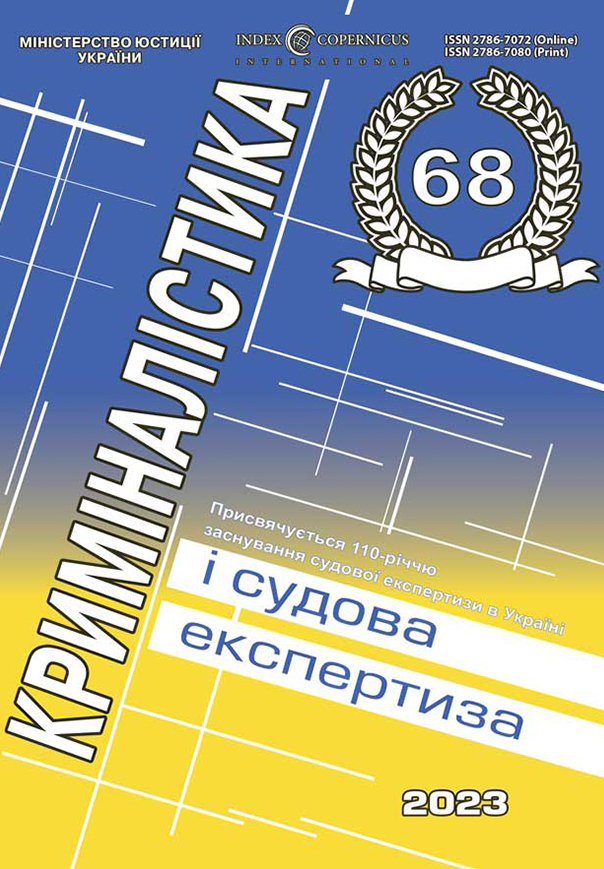
DOI: https://doi.org/10.33994/kndise.2023.68.12
N. Nestor
The article deals with the issues of interaction between the subjects engaged in the forensic expert activity and the bodies of pre-trial investigation and the prosecutor’s office in modern criminal proceedings in Ukraine. The existing problems in the mechanism of interaction between the subjects engaged in forensic expert activities and the bodies of pre-trial investigation and the prosecutor’s office in modern criminal proceedings of Ukraine are noted and ways to solve these problems are proposed.
It is noted that despite the unprecedented challenges faced by law enforcement agencies in their activities during the armed aggression of the russian federation against Ukraine, the implementation of the main provisions of the Comprehensive Strategic Plan for Reforming Law Enforcement Agencies as part of the Security and Defense Sector of Ukraine for 2023-2027, approved by the Decree of the President of Ukraine dated May 11, 2023 No. 273/2023, largely depends on the effective operation of the system of forensic expert support of justice.
The nature of procedural relations arising in connection with the appointment and conduct of forensic examinations in criminal proceedings implies active interaction of forensic experts and the entities that appointed the examination, and other persons. The state of organization of this interaction directly depends on the effectiveness of both forensic activities and the activities of criminal justice bodies.
However, investigative error in the appointment and conduct of forensic examinations continues to be a typical phenomenon of criminal justice in Ukraine, which is caused by the shortcomings of the legal regulation of the interaction of pretrial investigation bodies and the prosecutor’s office with the subjects of forensic activity.
Various approaches to determining the interaction between pre-trial investigation bodies and the prosecutor’s office and subjects of forensic activity are considered. It is indicated that it is carried out with the aim of the most rational use of special knowledge during criminal proceedings, in accordance with the law, according to certain principles, at different levels and in different forms. The main forms of interaction carried out by forensic expert institutions have been characterized, among which one is the main one conducting examinations on procedural decisions of pre-trial investigation bodies, prosecutor’s office, investigating magistrate, and court, since as a result of its use, an expert’s opinion appears as a source of evidence.
Based on the analysis of the provisions of normative legal acts that determine the procedure for interaction between pre-trial investigation bodies, prosecutors and subjects of forensic expert activity in criminal proceedings, it is concluded that it is necessary at the level of law to regulate the issues of conducting such traditional types of forensic examinations as additional, repeated, comprehensive, as well as to determine the powers of heads of forensic institutions.
Key words: criminal proceedings, forensic examination, pre-trial investigation bodies, prosecutor’s offices; interaction of subjects of forensic activity.










